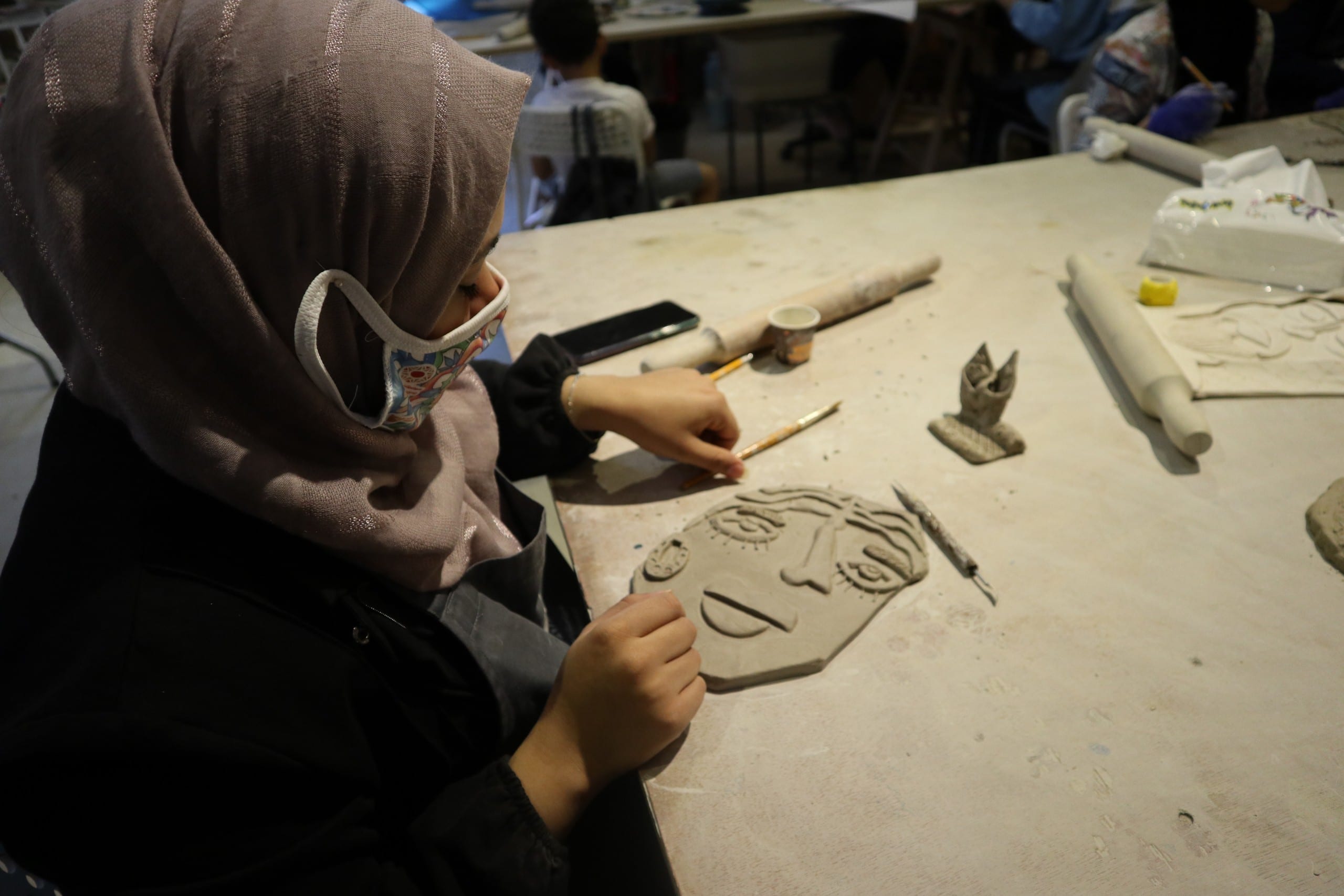
Ceramic for life: a new ceramic course for the women of Samaria
We knock on the door of the pottery workshop of Nisf Jubeil, the small village near the ancient city of Sebastia. The girls from the centre greet us shyly, asking for time to put the veil back on their heads. In a female-only environment, Muslim women are not required to cover their hair. The space of the course is for them a moment in which they feel free among women only, a space in which to confront, talk and learn.
“Ceramics for life”: this is the title of the 15-day seminar organized by the “veterans” of the workshop for ten young Palestinian women eager to learn the art of pottery making. The course is part of the larger project promoted by the Mosaic Centre, Pro Terra Sancta and Foundation Assistance Internationale (FAI) for the promotion of tourism in the areas of Sebastia, Jericho and Bethany.
Ruwaida Khalil, head of the course and one of the four founders of the workshop, tells us how the art of pottery has really changed her life. Thanks to Pro Terra Sancta and Mosaic Centre Ruwaida has found work with which she supports her family. She has managed to exploit a talent and make it a profession. She does not know if the future of these young women will foresee the work of clay: “Most of them are students who are passionate about art. For them it is learning a hobby, but in life you never know. For me it was the chance of a lifetime.”
“Ceramics for life” means that too. Learning how to make tools, everyday objects as they once were, means handling the earth and colours, but it also means new opportunities. “I’m self-taught, I’ve never had the chance to study art – explains Ruwaida – today after a long time it makes me proud to be able to teach these girls my job”.
The girls are busy working the clay, each of them is shaping a face. “All these faces will be placed on the wall of Nisf Jubeil’s guest-house. The installation wants to represent humanity in all its forms,” explains Ruwaida.
So on the tables you can see the faces of Shaskepeare, a pirate, the face of an old man or a woman as Picasso would have painted it. The girls were guided by fantasy and personal taste. Amal is carving Charlie Chaplin’s moustache in the clay, Tahani is shaping Mahmoud Darwsish’s glasses with his hands: “He is the most famous Palestinian poet. His poetry is of great inspiration to me”.
The choice to represent faces is original. In Islam it is forbidden (haram) to represent the human figure, but Ruweida and the other girls explain that in this case it is allowed (halal): “We can paint or represent the face of characters, but not the whole figure”.
Renan studies languages in Jerusalem, speaks Arabic, English, Hebrew and is learning Turkish. A very smart girl helps us to communicate with her colleagues. Art is a passion for her: “In this time of break from studying, I needed to put my energy into something else. This course is what I needed”. The girls agree with her: “During the coronavirus lockdown we felt we needed to test ourselves to learn something new”.
With clay on their hands, these ten women seem to detach themselves from everything: from the fear of contagion, the worries of the house, the difficulties of everyday life, certainly not easy for a Palestinian woman. Outside the workshop there is the world and real life, but for a few hours, gathered together in the small village of Nisf Jubeil, there are only them, the clay and the colours.